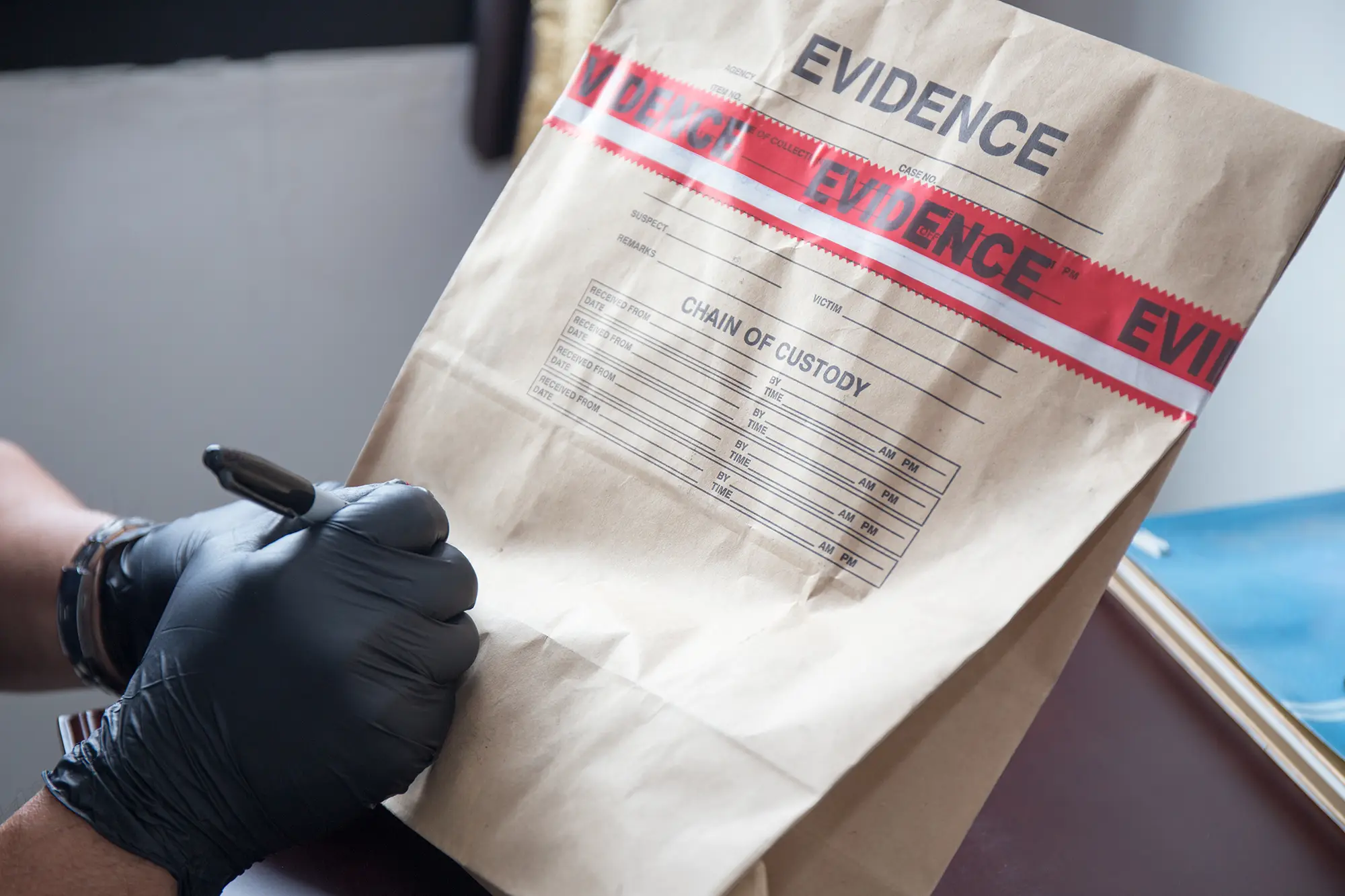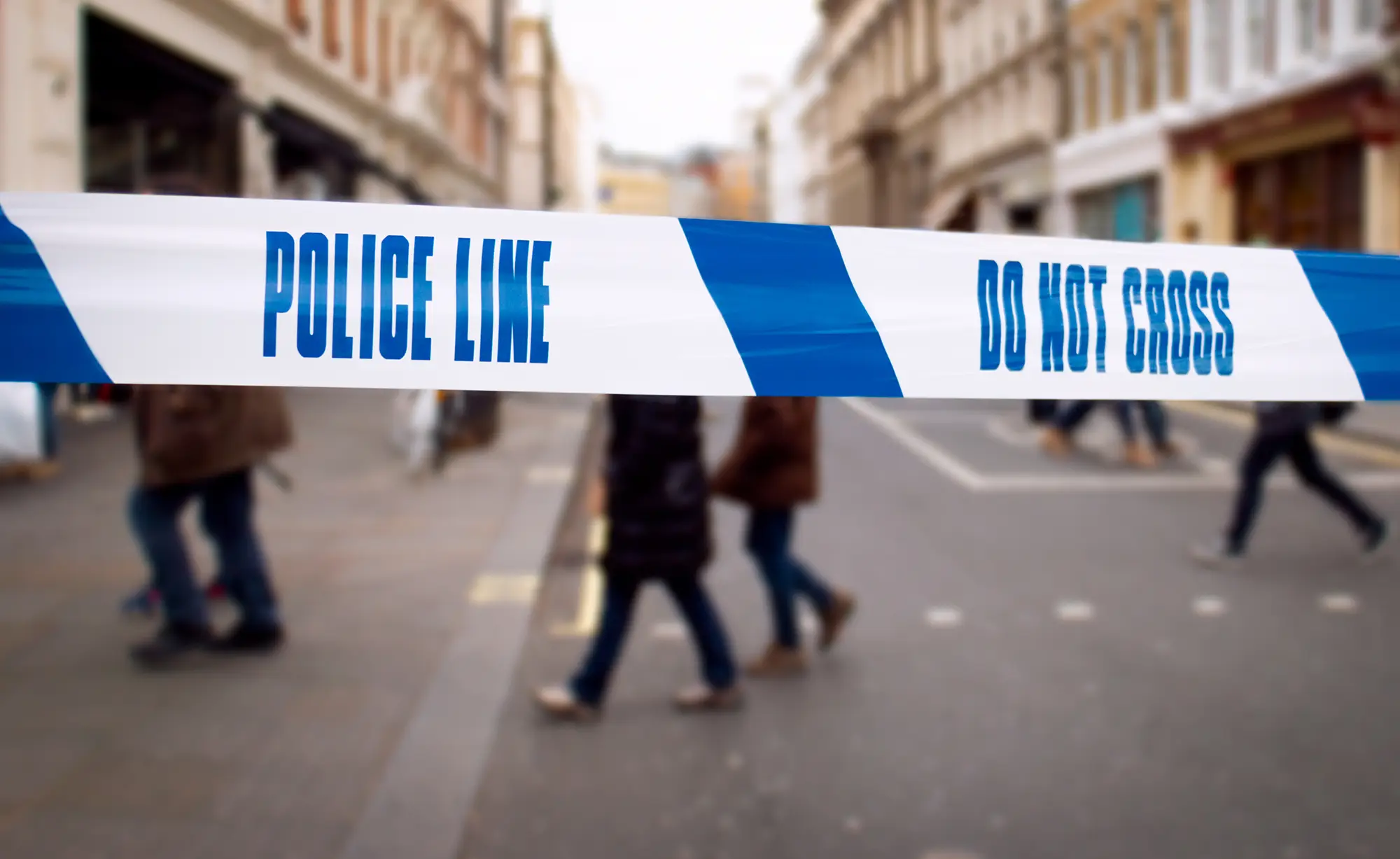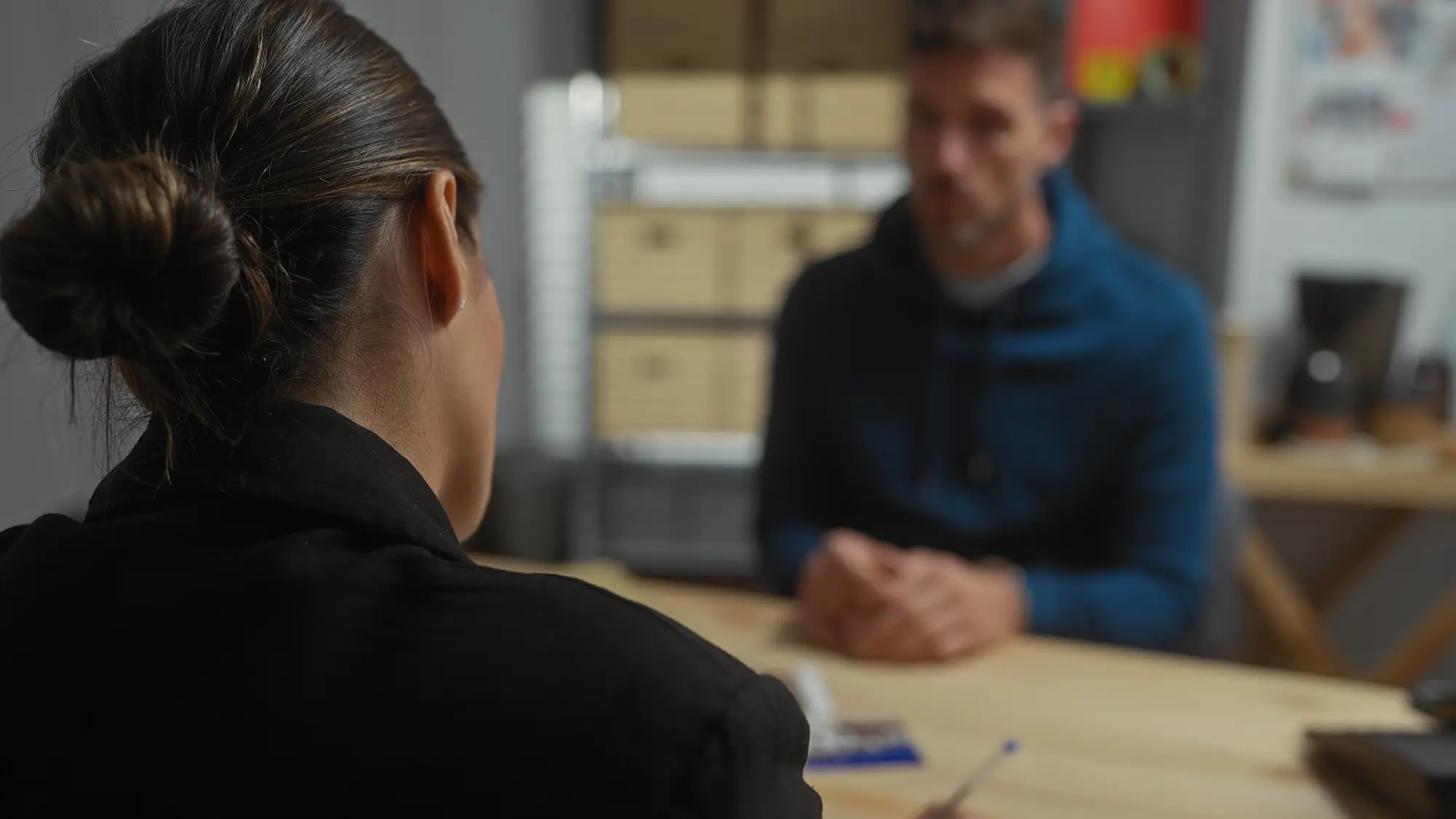What GCSEs Do You Need to Be a Detective? The Ultimate Guide 2026

December 9, 2025 | 2 months | By Career
In This Article:
- What Subjects Are Needed to Be a Detective?
- What Qualifications Do I Need to Be a Detective? Degree Entry Requirements by Institution
- What Qualifications Do I Need to Be a Detective? Tips & Considerations
- How Can You Study for GCSEs/A-levels?
- GCSEs for Detective Careers: Essential Information
- Kickstart Your Journey into a Detective Career with CloudLearn!
- FAQ
 Summarise this article with ChatGPT | Perplexity | Claude | Google AI Mode | Grok
Summarise this article with ChatGPT | Perplexity | Claude | Google AI Mode | Grok
Dreaming of solving crimes and bringing justice to communities? Becoming a detective is an exciting career path that combines analytical thinking, problem-solving skills, and the opportunity to make a real difference in society. But what educational foundation do you need to start this journey?
To become a detective in the UK, you'll generally need a minimum of 5 GCSEs at grades 9 to 4 (A to C), including English and Maths.* However, specific requirements can vary by police force and entry route, with some requiring or preferring A-Levels or a degree.
Essential GCSEs include English Language and Maths at grade 4 (C) or above, which are absolutely crucial for demonstrating fundamental literacy and numeracy skills. These core subjects are essential for report writing, evidence analysis, and case documentation that form the backbone of detective work.
Complementary subjects that can strengthen your application include Sciences (especially for roles in Scenes of Crime), Psychology, Sociology, and any other subjects that demonstrate strong analytical and communication skills. Many police forces also require or prefer candidates with A-Levels or equivalent Level 3 qualifications. While a degree is not always mandatory, some forces offer direct entry routes for graduates or degree apprenticeships.
A Guaranteed Pass in Your Exams!
CloudLearn are the only UK Online Learning centre to guarantee a pass for our students.
Find out more
What Subjects Are Needed to Be a Detective?
Core Subjects - The Essential Foundation
English Language
English is absolutely fundamental for any aspiring detective. This subject develops critical communication skills that you'll use daily throughout your career. Report writing forms a significant part of detective work, requiring you to produce clear, accurate, and detailed reports for court proceedings. These documents must be precise and legally sound, as they often become crucial evidence in criminal cases.
Effective interview skills are equally important, enabling you to communicate effectively with witnesses, victims, and suspects. The ability to ask the right questions and interpret responses can make or break an investigation. Additionally, strong English skills are essential for evidence documentation, including recording statements and maintaining proper chain of custody documentation.
When cases go to court, detectives must present their findings clearly to judges and juries. The ability to communicate complex information in a clear, concise manner is what separates effective detectives from the rest. Strong English skills are non-negotiable in this profession, making this GCSE an absolute requirement for anyone serious about a detective career.
Mathematics
Mathematics provides the analytical foundation that modern detective work increasingly demands. Statistical analysis has become crucial for understanding crime patterns and trends, helping detectives identify potential suspects and predict criminal behaviour. This mathematical approach to crime solving is particularly valuable in areas with high crime rates.
Financial investigations have become a growing area of detective work, particularly with the rise of white-collar crime and fraud cases. Detectives must be able to track money trails, understand complex financial transactions, and identify suspicious patterns in financial data. Mathematical skills are also essential for forensic calculations, including working with ballistics data, blood spatter analysis, and timeline reconstruction.
Mathematical thinking develops logical reasoning skills that are essential for connecting evidence and building strong cases. The ability to work with numbers and data analysis has become increasingly important as technology plays a larger role in modern investigations.

Complementary Subjects That Enhance Your Detective Skills
Sociology
Sociology provides invaluable insights into human behaviour and social structures that directly impact detective work. Understanding criminal behaviour requires knowledge of the social factors that contribute to crime, including poverty, family dynamics, and community influences. This understanding enables detectives to develop more effective investigation strategies and better predict criminal patterns.
Community policing has become increasingly important, and sociology helps detectives recognise how social dynamics affect crime prevention efforts. Cultural sensitivity is crucial when working with diverse communities, and sociological knowledge helps detectives navigate complex cultural issues that may arise during investigations.
Social research methods taught in sociology can be directly applied to investigations, helping detectives gather and analyse information more effectively. This subject is particularly valuable for homicide detectives who need to understand complex social relationships and motivations behind serious crimes.
Psychology
Psychology provides crucial understanding of human mental processes that can significantly enhance detective work. Effective interview techniques require psychological insight into how people think and respond under pressure. Understanding psychological principles helps detectives ask more effective questions and interpret responses more accurately.
Behavioural analysis has become an essential skill for modern detectives, particularly when dealing with serial crimes or complex criminal patterns. Psychology also helps detectives provide appropriate support to trauma victims, ensuring that interviews are conducted sensitively while still gathering necessary evidence.
Mental health awareness is increasingly vital as detectives frequently encounter individuals experiencing mental health crises. Psychology is especially relevant for police detectives working on cases involving domestic violence, sexual assault, or crimes against vulnerable individuals, where understanding psychological trauma is essential.
Science, Chemistry & Physics
The sciences offer technical knowledge that's increasingly important in modern detective work as forensic science continues to advance. Chemistryhelps with drug identification and analysis, which is crucial given the prevalence of drug-related crimes. Understanding forensic toxicology enables detectives to work more effectively with forensic scientists and interpret chemical evidence from crime scenes.
Physics supports ballistics analysis and trajectory calculations, which are essential for understanding shooting incidents. Blood spatter pattern analysis also relies heavily on physics principles, helping detectives reconstruct crime scenes more accurately.
Biology is valuable for DNA evidence interpretation and understanding biological markers found at crime scenes. Working with forensic pathology requires a basic understanding of biology to communicate effectively with medical examiners and forensic specialists.
Combined Science offers a comprehensive foundation across all scientific disciplines, making it an excellent choice for individuals interested in forensic detective work or crime scene investigation roles.
What Qualifications Do I Need to Be a Detective? Degree Entry Requirements by Institution
Metropolitan Police Department
The Metropolitan Police offers several pathways to becoming a detective, each with different educational requirements. *GCSE requirements include a minimum of 5 GCSEs at grades 9-4 (A-C)**, with English Language and Maths being essential. Science subjects are preferred for specialist roles, particularly those involving crime scene investigation or forensic work.
The Police Constable Degree Apprenticeship allows you to earn while you learn, providing a degree in Professional Policing Practice over three years. This route combines practical police work with academic study, making it ideal for those who prefer hands-on learning. The Degree Holder Entry Programme offers a fast-track route for graduates, condensing traditional police training into an intensive 18-week program.
Detective Constable Entry Programme provides direct entry into detective roles for candidates with relevant experience or education. This pathway is particularly attractive for those with backgrounds in investigation, security, or related fields.

Thames Valley Police
Thames Valley Police emphasises both academic qualifications and practical skills in their detective recruitment. GCSE requirements mirror those of other forces, with English and Maths being essential at grade 4 or above. However, they place particular emphasis on critical thinking skills and the ability to work under pressure.
Their detective training programme focuses heavily on practical investigation skills, including interview techniques, evidence gathering, and case management. A-levels are preferred but not always required, especially for candidates with relevant work experience or military backgrounds.
Cheshire Constabulary
Cheshire Constabulary offers innovative pathways into detective work, including partnerships with local universities for degree apprenticeships. GCSE requirements include the standard English and Maths, but they also value subjects that demonstrate analytical thinking and communication skills.
Their Detective Constable Entry Programme is designed for candidates who want to specialise in detective work from the beginning of their police career. This approach differs from traditional routes where officers must serve as constables before moving into detective roles.

What Qualifications Do I Need to Be a Detective? Tips & Considerations
Compare Different Career Pathways
Several routes lead to becoming a detective, and choosing the right path depends on your current qualifications and career goals. Traditional police constable routes involve starting as a uniformed officer and progressing to detective roles. This path offers comprehensive police experience but requires a more extended timeframe to achieve detective status.
Graduate direct entry programmes offer faster routes for degree holders, typically taking 1.5 to 2 years. Degree apprenticeships combine work and study, allowing you to earn while learning and gain practical experience alongside academic qualifications.
Consider your long-term career goals when choosing a pathway. Some routes lead more directly to specialist detective roles, while others provide broader police experience that may be valuable for senior positions.
Consider Entry Requirements
Different police forces have varying requirements, so research your preferred force thoroughly. Some forces prioritize academic qualifications, while others value practical experience or specific skills. Regional differences may also impact opportunities, with urban areas often offering more diverse detective roles.
Age restrictions typically require candidates to be 18 or older, with no upper age limit for most forces. Physical fitness requirements vary but generally include basic fitness tests and medical examinations.
Extra Ways to Reinforce Your Path
A-levels
A-levels significantly strengthen your application and may be required for certain entry routes. Law, Psychology, and Sociology A-levels are particularly relevant for detective work. Sciences can be valuable for forensic roles, while English Literature develops advanced communication skills.
Working Experience
In many cases, relevant work experience can compensate for academic qualifications. Security work, military service, or legal assistance roles provide a valuable background for detective work. Volunteer work with victim support organisations or community safety groups demonstrates a commitment to public service.
Extracurriculars
Leadership roles in sports, volunteering, or community organisations demonstrate the personal qualities valued in detective work. Problem-solving competitions, debate clubs, or drama societies can develop skills relevant to investigation and interviewing.
How Can You Study for GCSEs/A-levels?
Traditional School
Traditional sixth forms and colleges provide structured learning environments with experienced teachers and peer support. However, they may not offer the flexibility needed for mature students or those with other commitments.
Night School
Evening classes allow you to study while working or managing other responsibilities. Many colleges offer GCSE and A-level courses in the evenings, making them accessible for career changers or those returning to education.
Homeschooling and Online Academies
Online learning platforms like CloudLearn offer maximum flexibility for studying GCSEs and A-levels. You can study at your own pace and access expert tutoring support when needed. This approach is particularly suitable for adults returning to education or those who need to balance study with work commitments.
CloudLearn offers comprehensive course materials and unlimited tutor support, ensuring you have everything you need to succeed. The platform offers all the key subjects required for detective work, including English, Maths, Sciences, Psychology, and Sociology.

GCSEs for Detective Careers: Essential Information
Core subjects for detective work include English Language and Maths as absolute essentials, with grades of 4 (C) or above being the minimum requirement. Recommended complementary subjects include Psychology, Sociology, and at least one Science subject to provide a well-rounded foundation.
Minimum grades typically require 5 GCSEs at grades 9-4 (A*-C), though higher grades will strengthen your application significantly. Many successful detectives exceed these minimum requirements, often achieving grades 6 (B) or above in key subjects.
Skills needed to be a detective extend beyond academic qualifications to include critical thinking, attention to detail, excellent communication skills, and the ability to work under pressure. Detective job qualifications may vary between forces, but strong GCSE results provide the foundation for all career pathways.
Kickstart Your Journey into a Detective Career with CloudLearn!
Ready to begin your journey toward becoming a detective? CloudLearn offers comprehensive online GCSE courses explicitly designed for students planning careers in law enforcement and criminal justice. Our expert tutors understand the specific requirements for detective work and can guide you toward the qualifications you need.
With flexible study options and unlimited tutor support, you can prepare for your GCSEs while managing other commitments. Our 100% pass guarantee ensures that you'll achieve the grades needed to pursue your career goals as a detective.
Whether you're starting fresh or looking to improve existing grades, CloudLearn provides the perfect platform for academic success. Contact us today to discuss how we can help you achieve your detective career aspirations.
Frequently Asked Questions
What GCSEs do you need to be a crime investigator?
Crime investigators typically need the same GCSEs as detectives: English Language and Maths at grade 4 (C) or above, plus at least three additional subjects. Science subjects are particularly valuable for crime scene investigation roles, while Psychology and Sociology help with understanding criminal behaviour.
How much do detectives get paid in the UK?
Detective salaries in the UK vary by rank and location. Starting detective constables typically earn £24,000-£30,000, while experienced detectives can earn £35,000-£50,000 or more. Specialist roles and senior positions can command significantly higher salaries, with detective inspectors earning between £50,000 and £70,000 in many forces.
Do you need a degree to be a detective?
A degree is not always required to become a detective, though it can significantly enhance your prospects. Many forces offer degree apprenticeships that allow you to earn a degree while training as a police officer. Graduate direct entry programmes provide fast-track routes for degree holders, while traditional routes focus more on practical experience and on-the-job training.